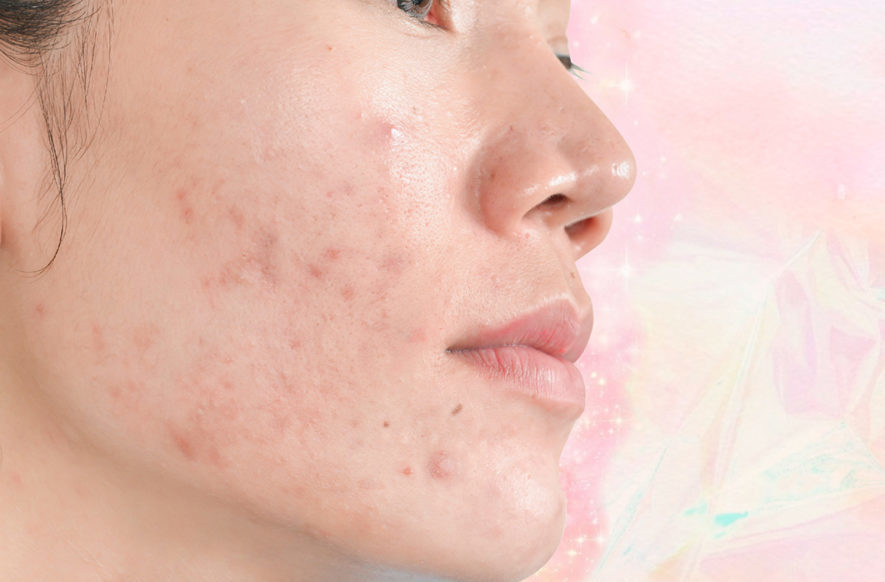What is the most effective acne skincare routine?
Creating an effective skincare routine for acne involves a balanced approach that addresses the causes of acne while nurturing your skin’s overall health. Here’s a comprehensive guide to crafting a personalized routine that can help manage acne effectively without overwhelming you or your skin.
Understanding Acne
Acne is a common skin condition characterized by the presence of pimples, blackheads, whiteheads, cysts, or nodules. It can occur due to various factors, including:
- Excess Sebum Production: Overproduction of oil by the sebaceous glands.
- Clogged Pores: When dead skin cells and oil block hair follicles.
- Bacterial Growth: Propionibacterium acnes (P. acnes) bacteria thrive in clogged pores.
- Inflammation: Irritation and inflammation of the skin due to pore blockages.
Step-by-Step Acne Skincare Routine
1. Cleaning (Morning and Evening)
Purpose: To remove excess oil, dirt, and impurities without stripping the skin. Elocon Cream is typically prescribed for inflammatory skin conditions like eczema, dermatitis, or psoriasis under the guidance of a healthcare provider. Its use for acne is limited and usually reserved for specific cases where other treatments have failed or are contraindicated.
- Choose a Gentle Cleanser: Opt for a non-comedogenic, sulfate-free cleanser that is gentle on your skin. Look for ingredients like salicylic acid, benzoyl peroxide, or tea tree oil for their acne-fighting properties.
- How to Use: Massage a small amount onto damp skin using circular motions. Rinse thoroughly with lukewarm water. Pat dry with a clean towel.
2. Toning (Optional)
Purpose: To balance the skin’s pH and remove any leftover impurities.
- Choose an Alcohol-Free Toner: Look for ingredients like witch hazel, rose water, or niacinamide to soothe and hydrate the skin.
- How to Use: Apply toner to a cotton pad and gently swipe over your face and neck. Allow it to dry before proceeding to the next step.
3. Treatment (Targeted Acne Treatment)
Purpose: To treat existing acne and prevent new breakouts.
- Choose an Acne Treatment: Depending on your skin type and severity of acne, select products containing:
- Benzoyl Peroxide: Kills bacteria and reduces oil production.
- Salicylic Acid: Exfoliates dead skin cells and unclogs pores.
- Retinoids: Promote cell turnover and prevent pore blockages.
- How to Use: Apply a thin layer of treatment to affected areas or as directed. Allow it to absorb fully before moving to the next step.
4. Moisturizing (Morning and Evening)
Purpose: To hydrate and protect the skin barrier.
- Choose a Non-Comedogenic Moisturizer: Look for lightweight, oil-free formulations that won’t clog pores.
- How to Use: Dispense a pea-sized amount and gently massage onto your face and neck. Allow it to absorb fully before applying sunscreen or makeup.
5. Sun Protection (Morning)
Purpose: To protect the skin from UV damage and prevent hyperpigmentation.
- Choose a Broad-Spectrum Sunscreen: Opt for SPF 30 or higher, labeled as “non-comedogenic” or “oil-free.”
- How to Use: Apply sunscreen generously to all exposed areas of the skin, including your face, neck, and any other exposed areas. Reapply every 2 hours, especially if outdoors.
6. Weekly Treatments (1-2 Times per Week)
Purpose: To exfoliate dead skin cells and promote skin renewal.
- Choose a Gentle Exfoliant: Use chemical exfoliants like alpha hydroxy acids (AHAs) or beta hydroxy acids (BHAs) to unclog pores and improve skin texture.
- How to Use: Follow the instructions provided with your exfoliant. Start with once a week and adjust based on your skin’s response.
7. Hydration (Throughout the Day)
Purpose: To maintain skin hydration and overall health.
- Drink Plenty of Water: Hydration from within helps maintain skin elasticity and clarity.
- Use a Humidifier: Especially in dry climates, to add moisture to the air and prevent skin dryness.
Additional Tips for an Effective Acne Skincare Routine
Diet and Lifestyle
Tretinoin cream, a derivative of vitamin A and a type of retinoid, is indeed considered one of the most effective treatments for acne. Here’s why and how tretinoin can be an integral part of an acne skincare routine:
- Balanced Diet: Avoid foods that can trigger acne flare-ups, such as dairy and high-glycemic foods.
- Manage Stress: Stress can exacerbate acne, so practice stress-relieving techniques like yoga or meditation.
- Regular Exercise: Promotes circulation and helps keep hormones in balance.
Skincare Dos and Don’ts
- Do: Clean your makeup brushes regularly to prevent bacteria buildup.
- Don’t: Pick or squeeze acne lesions, as it can lead to scarring and further inflammation.
- Do: Consult a dermatologist if over-the-counter treatments are not effective or if acne is severe.
Adjusting Your Routine
- Be Patient: It can take several weeks to see improvement. Stick with your routine and make adjustments as needed.
- Monitor Your Skin: Note any changes or reactions to products and adjust accordingly.
- Avoid Overdoing It: Too many products or harsh ingredients can irritate the skin and worsen acne.
Conclusion
Crafting an effective acne skincare routine involves understanding your skin type, choosing suitable products, and maintaining consistency. By following these steps and incorporating healthy habits into your lifestyle, you can help manage acne and promote clearer, health skin over time. If you have persistent or severe acne, consult with a dermatologist for personalized advice and treatment options tailored to your specific needs.



